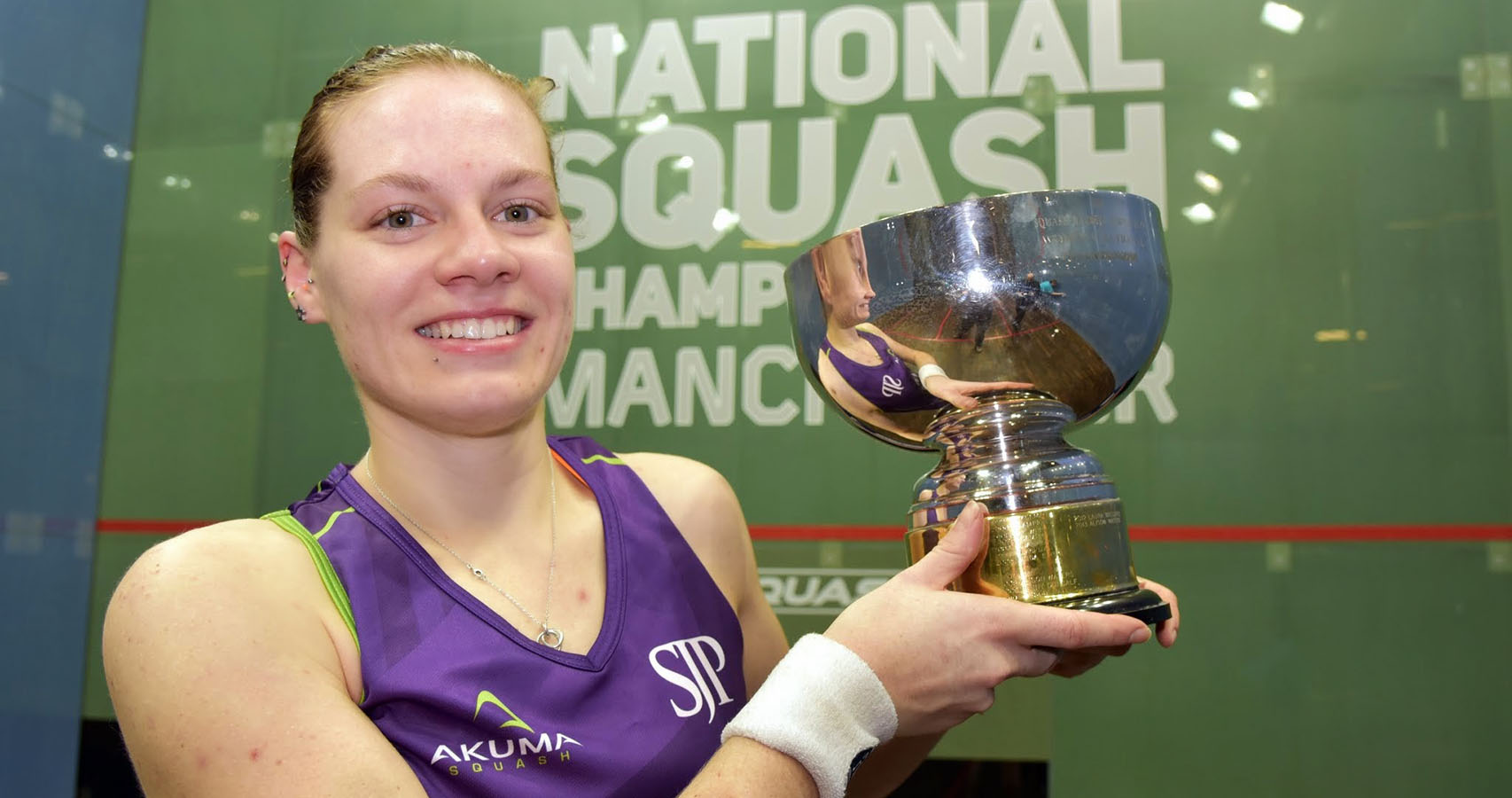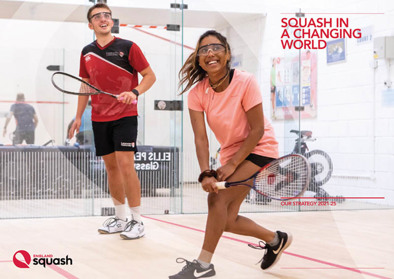Sarah-Jane Perry's story

Back in 2013, Sarah-Jane Perry wrote the following article entitled Overcoming Adversity about the challenges she faced trying to become a professional player. Now, three years on, Sarah reveals how she's reached her current career-high ranking of world number 11.
"A comment that is always prevalent in the squash world is the varied 'builds' of the players. Some sports have obvious advantages for certain body types; for example basketball players are usually pretty tall and gymnasts pretty small. Squash however doesn't have one 'dominant' body type, which I personally think makes the game more exciting as players have different games built around their own physical strengths. Being taller means longer reach but also further to get down to the ball, compared to small players who are often quick and agile."
"I've titled my piece 'Overcoming Adversity' because so often in sport people are told they can't do something because they 'aren't this or aren't that'. My question is why is so much focus placed on comparing specific attributes to the top players?
"From a young age, I loved playing sport. I did anything going; squash, tennis, athletics, rounders, hockey etc... The key word being 'playing'. A big part of being a professional athlete is loving the sport and for me playing squash without pressure and expectations was how I fell in love with our precious game. Throughout juniors I loved squash, I would play pretty much every day and have a tournament most weekends. I was a decent junior, but despite this, there was always people telling me reasons why I would never make it as a squash player. At the time I just accepted it, I was talented with a racket but not an athlete, and never would be.
"When I finished school I decided to go to University. For me this was a big decision but not a hard one. I loved squash but I had people telling me I would never make it, so why would I choose to do something I was bound to fail at?
It ended up to be one of the best decisions I ever made. If I had turned professional at 18, I believe I wouldn't have been able to have the correct approach or mindset and certainly not attained the progress I have done since turning professional in August 2011.
"I met so many different people at University, both in and out of sport and it was fascinating to see such varied outlooks on life. One of my close friends had spent most of her childhood in hospital receiving treatment for Leukaemia, overcame that then discovered she had a serious heart condition. She didn't let any of this stop her, getting into one of the top universities in the country, graduating and going on to get a great job. She could have so easily let her adversities get the better of her, but instead she decided not to fear but to realise her strengths and use them to her advantage.
"Even at the end of my course, I had doubts. My coach sat me down and told me he believed in me, so I thought 'if he believes in you, try believing in yourself. I'll regret not trying infinitely more than trying and not succeeding'.
"Taking away someone's confidence in doing what they love is dangerous. I have a few people to thank for keeping me on a positive track and getting me to where I am today. Without them, the doubt would possibly have consumed my love for the sport.
"So next time you watch a match and think 'oh, they aren't as quick as Nicol David' or 'their technique isn't as good as Amr Shabana' try and look from a different point of view. What do they do best?
"I am 6 foot tall and not slight, so for me to compare myself to someone shorter and slight like Nicol David on all aspects would not be useful and probably detrimental in the long run. Yes, I can learn from other players, but this is SJ squash and I'm going to do it my way!
"So back to 'Adversity'; a word that often provokes fear due to lack of understanding. Different doesn't have to mean worse. Every player has natural instincts and while it's important to hone them, it is just as important not to coach them out. By using something innate and building our game so it can be used as a weapon, we are taking adversity and using it to our advantage.
"A good coach will encourage players to develop their own specific style of play based around their strengths and weapons.
"Being told I wouldn't make it did impact on my confidence and if I hadn't had my parents and my coach telling me they believed in me, I might have been pushed to stop. At the end of the day, why play like someone else, when you can play like you? Don't fear the adversity, celebrate it!"
October 2016
"Having re-read this article for the first time in a while, I think every bit I wrote rings truer than ever with me. I have just had two of the best wins of my career to date but it hasn't come easy. I decided I wanted to work with a new coach and made sure I thought carefully about someone that I believed not only could improve my game but that would hold the same beliefs as me about playing to strengths and building a game based around them. Change can be quite scary when you're so used to someone's ways (or something) but I now see it's vital to keep evolving and hopefully improving; maybe I'll write a further article about it at some stage.
"For now though, I am embracing change, becoming a more confident squash player (and person) whilst still maintaining the core belief of playing to my strengths. Focus on what you can do and go from there. A quote which relates perfectly is:
'Adversity can be turned to opportunity simply by adjusting our perception and our attitude' - Gail Lynne Goodwin.
"I will finish by saying exactly the same as several years ago. Don't fear the adversity, celebrate it!"











 Back
Back


-3.png)

 (2).png)
.png)
-1.png)
.png)
.png)
-1.png)


 (1).png)
.png)

